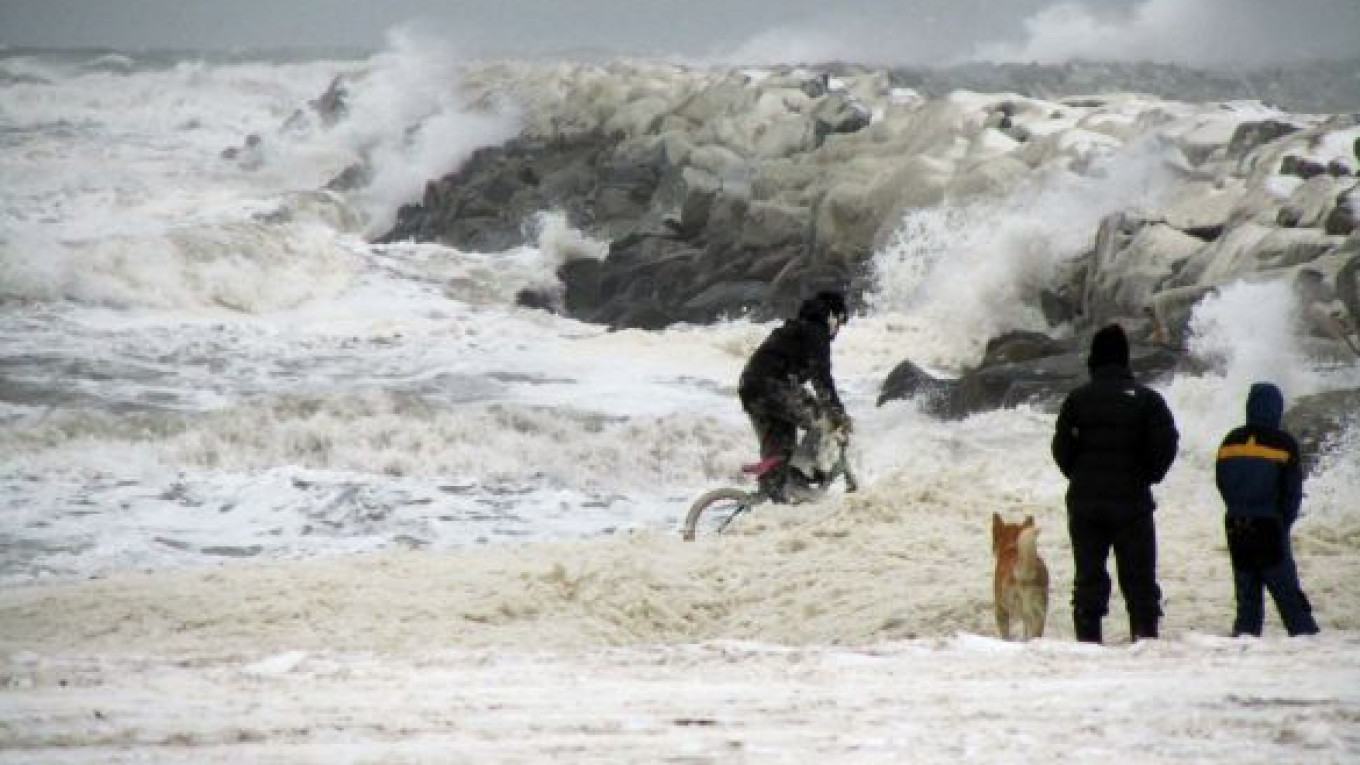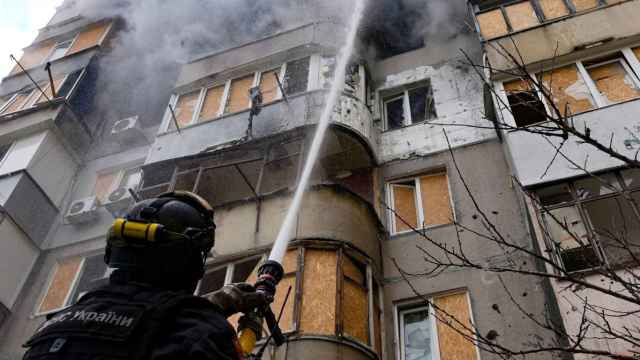ANCHORAGE, Alaska — The iced-in city of Nome on Alaska's western coast may be in luck: A Russian tanker that can plow through thick ice will try to deliver 1.5 million gallons of home-heating fuel, gasoline and diesel fuel after a massive storm kept a barge from getting in before winter.
The vessel — which is certified to travel through ice 1.2 meters thick for long distances — delivers fuel to communities in the Russian Far East. The plan is for it to leave Russia this week and go to South Korea, where it will be loaded with fuel, and then travel to Nome, where it should arrive by late December.
If it can't make it into port, the tanker is equipped with a hose more than a 1.6 kilometers long for offloading fuel.
It could save the 3,500 residents of the coastal city from a very costly winter, including predictions of $9 a gallon gasoline if fuel had to be flown in.
Sitnasuak Native Corporation said Monday that it had signed a contract with Alaska-based Vitus Marine to have the double-hulled ice-class Russian tanker, owned by Russian company Rimsco, deliver the petroleum products.
Sitnasuak board chairman Jason Evans said if the marine tanker succeeds, it will be the first time petroleum products have been delivered by sea in winter to a western Alaskan community.
"It really came down to that one vessel that could possibly do the job. It just so happens it was available at the moment we needed it," Evans said.
Sitnasuak has between 800 and 1,000 customers in Nome and was looking at a $3 to $4 per gallon increase if fuel had to be flown in.
He said Monday that the tanker option more than halved the increase. Fuel prices are also lower than they were a couple of months ago, he said.
"The net result will be incrementally more, not substantially more," he said.
Sitnasuak looked at its options after a Delta Western barge was not able to make a delivery to Nome, leaving the city short of its winter fuel supplies.
If nothing was done, supplies of gasoline and diesel, needed to run ambulances and state equipment to maintain and plow roads, were expected to reach low levels within three months. Home-heating fuel was in better supply in the city, which has one other major fuel supplier.
Sitnasuak, which has been in the fuel business for more than 20 years, said flying fuel to Nome would be costly. It settled on the Russian ice-class tanker delivery plan after determining that it would be much less expensive and more practical than flying fuel.
The tanker recently traveled through about 1.5 meters of ice to reach communities in the Russian Far East, Evans said.
A Message from The Moscow Times:
Dear readers,
We are facing unprecedented challenges. Russia's Prosecutor General's Office has designated The Moscow Times as an "undesirable" organization, criminalizing our work and putting our staff at risk of prosecution. This follows our earlier unjust labeling as a "foreign agent."
These actions are direct attempts to silence independent journalism in Russia. The authorities claim our work "discredits the decisions of the Russian leadership." We see things differently: we strive to provide accurate, unbiased reporting on Russia.
We, the journalists of The Moscow Times, refuse to be silenced. But to continue our work, we need your help.
Your support, no matter how small, makes a world of difference. If you can, please support us monthly starting from just $2. It's quick to set up, and every contribution makes a significant impact.
By supporting The Moscow Times, you're defending open, independent journalism in the face of repression. Thank you for standing with us.
Remind me later.






